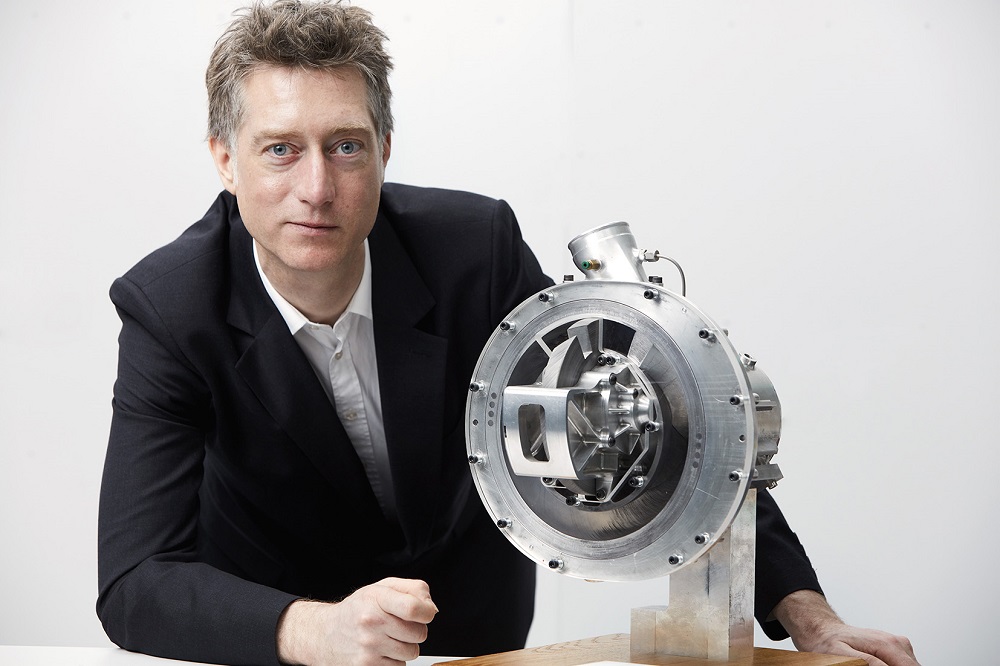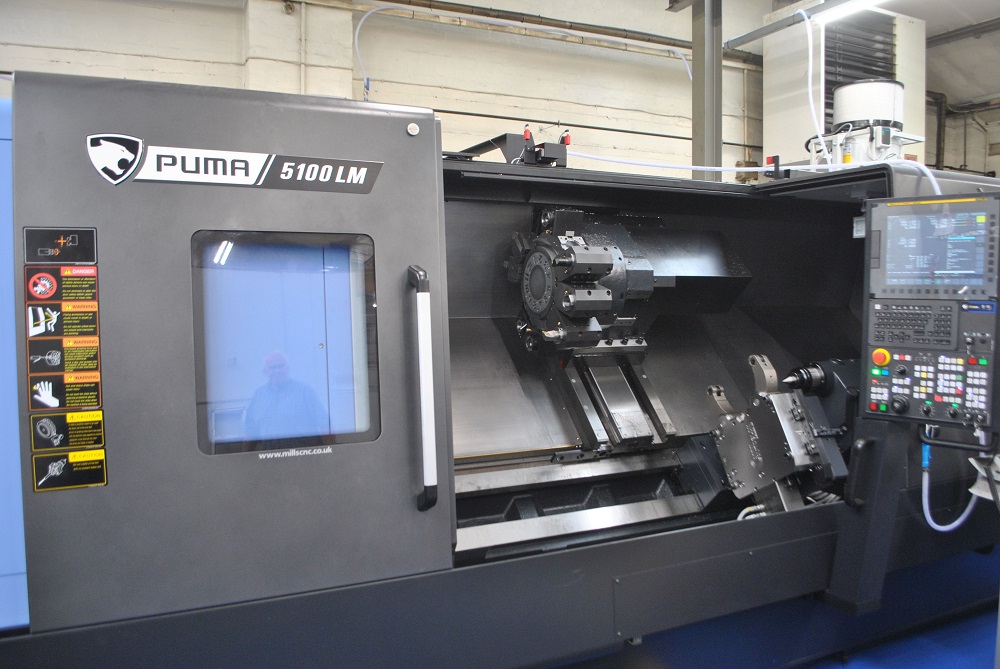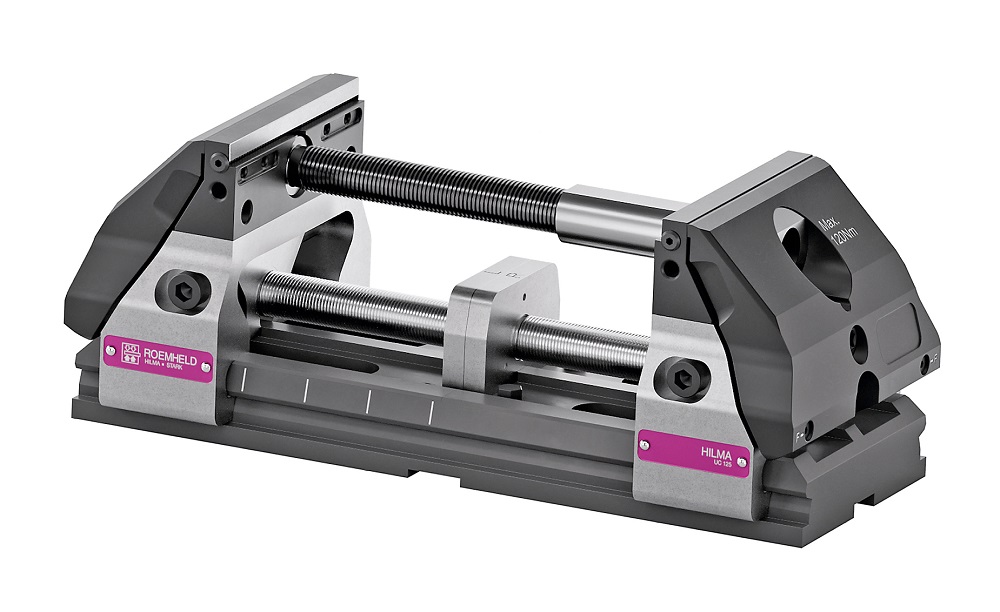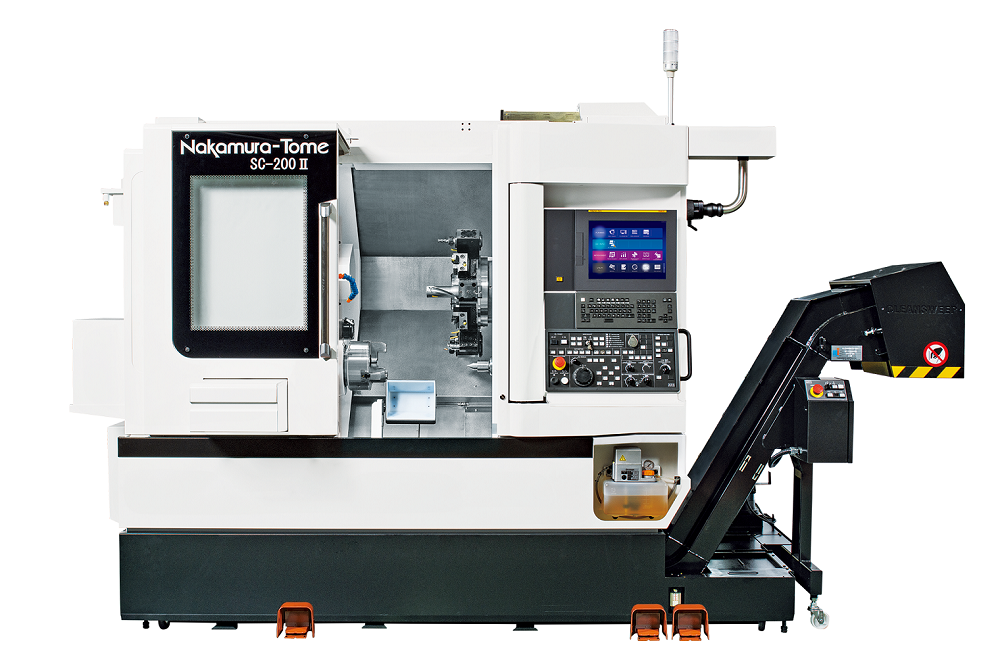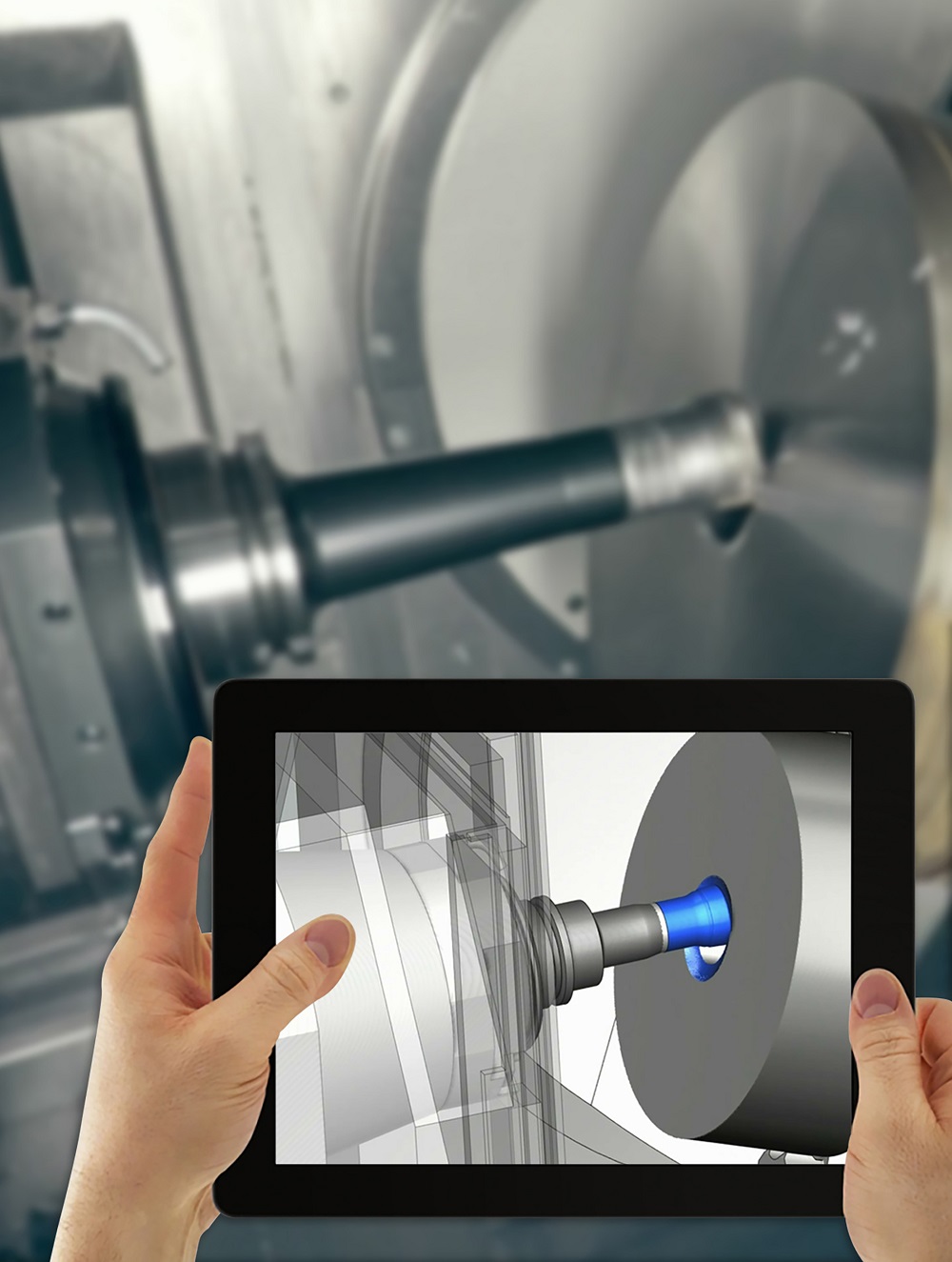An increase in demand for its high-quality machining services from existing customers, coupled with a growing number of new and significant machining contract ‘wins’ from new customers, provided the catalyst for Burcas Ltd to invest in two new machine tools from Mills CNC.
The new machines, both DN Solutions’ models, comprise: a large-capacity, heavy-duty 21” chuck Puma 5100LMB long-bed, box-guideway lathe equipped with driven tooling; and a 10” chuck SMX 2600S multi-tasking mill-turn machine equipped with two opposing (left and right) spindles and a B-axis milling head.Both machines feature the latest FANUC iPlus control and 15” touchscreen iHMIs. Ordered at the same time, in early 2023, the machines increase Burcas’ in-house capabilities and capacity at its West Bromwich facility.
The Puma 5100LMB and SMX 2600S are the second and third machines Burcas has acquired from Mills CNC in its 82-year history – the first being a large Mynx 9500/50 vertical machining centre that arrived in November 2020 to machine high-value, high-precision tooling, prototypes and components primarily for customers in the nuclear sector.
Says Mike Burrows, Burcas’ owner and managing director:“The Mynx 9500/50 has been a great investment and more than proved its worth since being acquired.Day in and day out the machine delivers the high part accuracies and fast processing speeds that we, and our customers, demand.It has undoubtedly helped us strengthen our supply chain position within the nuclear sector and, over the past three years, has been more than instrumental inhelping us secure a number of new machining contracts in the sector.”
The nuclear industry remains important to Burcas, and the company is actively working towards the “Fit for Nuclear’ accreditation to consolidate and strengthen its position in the sector still further.
Burcas’ positive experience with its Mynx machine, and with Mills CNC in general, was a prime motivator in the company investing in its new Puma 5100LMB and SMX 2600S machines.
“It was around September 2022 when enquiries from customers in the defence, aerospace, oil and gas, rail, and nuclear sectors really took off,” recalls Burrows. “This was clearly great news for us, but in order to meet such an increase in demand, we needed to evaluate our existing in-house machining capacity and capabilities, and stress-test our processes and systems, to make sure we could cope.”
As a company committed to continuous improvement, systematic monitoring and analysis of its production processes is not something new, or alien, to Burcas.Identifying and addressing, in advance, any potential production bottlenecks and pinch points, before the new business came on stream, were necessary pre-requisites. The company believed this would make all the difference between seamlessly ramping up production and struggling to meet its new manufacturing targets.The audit identified that Burcas needed to strengthen its turning and milling capabilities.
Says Burrows:“The new business we acquired was all high precision in nature and involved the machining of different materials: everything from aluminium and nickel-chrome-molybdenum steel, through to stainless steels, titanium and Hastelloy.With such diversity, we needed versatile machines capable of performing heavy-duty roughing operations, right through to super-fine finishing operations and everything in-between.To improve our productivity and process efficiencies, we also knew that multi-axis machines would be the direction of travel.”
Armed with a clear understanding of its new machine tool requirements, Burcas approached the market in early 2023 with Mills CNC being one of its first ports of call.
“We like Mills’ business approach and have built a good relationship with the company in a relatively short period of time,” says Burrows.“The depth and breadth of the DN Solution’s range of machines is extensive and Mills’ progressive stocking policy means that machine availability is good.These strengths, combined with Mills’ after-sales and service support, put them in a favourable position vis-à-vis our new investment requirement.”
Subsequent discussions between Burcas and Mills ultimately resulted in both parties agreeing a two-machine-tool package.
The Puma 5100LMB is a large-capacity,long-bed, box guideway lathe with a 650mm maximum turning diameter and a 2002mm maximum turning length. It features a 45kW/1500rpm/2957Nm spindle, driven tooling (4000rpm) and a 12-station turret. The machine supplied to Burcas also features a dead-centre tailstock and through-coolant (20bar) capability.Since installation, the Puma 5100LMB has been put through its paces machining a range of prototypes and parts for the company’s defence, rail and oil and gas customers.
“The Puma 5100LMB is a great acquisition that has considerably strengthened our in-house turning capabilities,”states Burrows.“The machine’s driven tooling capability also means that parts do not need transferring to a machining centre and can be completed in one set up.”
DN Solutions’ SMX 2600S is a multi-tasking mill-turn machine equipped with two opposing 30 kW/4000rpm spindles which, with its 12,000rpmB-axis milling spindle, can perform a range of machining functions such as turning, milling and synchronised cutting in a single set-up.The machine features a 40-position automatic tool changer and was supplied to Burcas with linear scales (X and Yaxis) for improved accuracy and a SLU-X4 steady rest for machining longer parts.
Says Burrows:“The SMX 2600S has only recently been installed but it’s already making a difference machining high-precision, complex parts to completion, in one set-up, for our newly-acquired aerospace and defence machining contracts.The machine’s mill-turn capabilities also means that we have been able to re-imagine and develop new, more efficient machining processes for existing parts, freeing up time and production capacity on our other lathes and machining centres.”
Whether its machining anti-tilt bars for Burcas’ rail customers, down-hole components for oil and gas customers, wobble-box components for aerospace customers or glove-box components for the nuclear industry, the new DN Solutions machines are proving their worth delivering significant productivity and process efficiency gains to a company whose machining services are in demand.
For further information www.millscnc.co.uk






